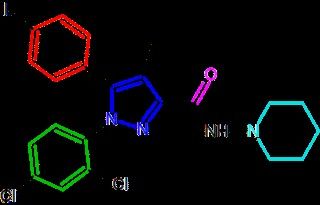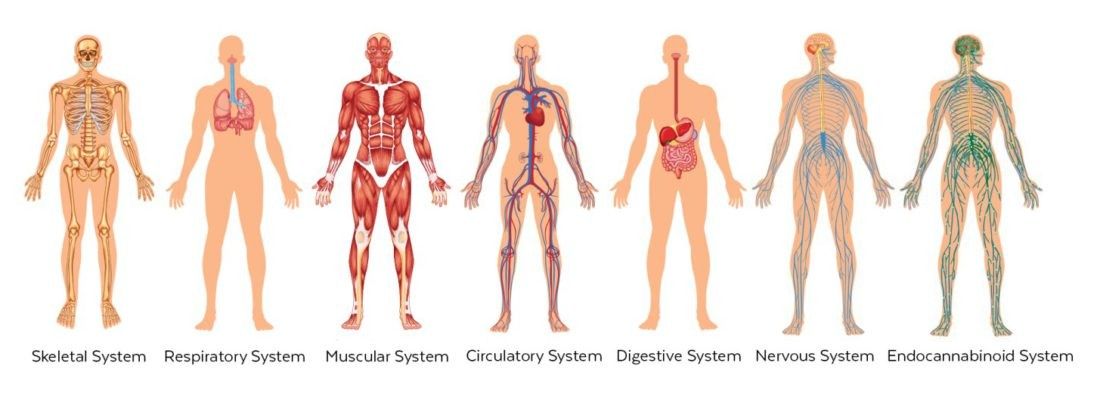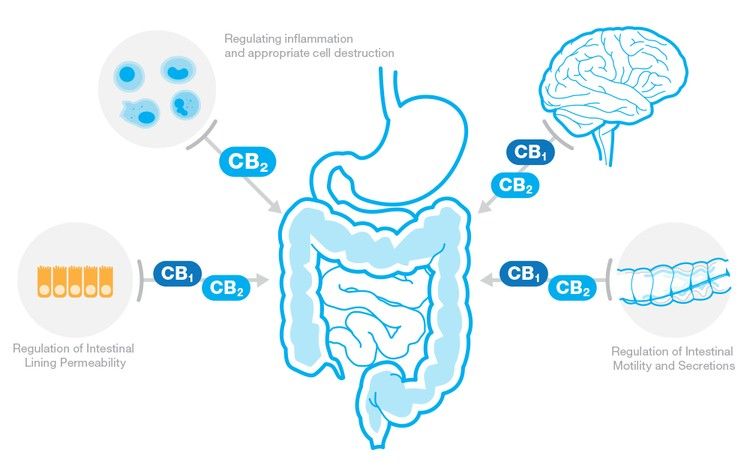If you’ve ever wondered if CBD oil could help treat your inflammatory bowel syndrome (IBS) the answer is YES!
Irritable bowel syndrome (IBS) is the most common digestive disorder seen by physicians. It is estimated that approximately 10-15% of the population has symptoms of IBS, although fewer than half of them seek medical help for it. More than twice as many women suffer from the condition as men. (IBS is also sometimes called intestinal neurosis, mucous colitis, spastic colitis, or spastic colon, but these are outdated terms). Irritable bowel syndrome is one of a range of conditions known as functional gastrointestinal disorders. In IBS, this disorder of functioning is with the way nerves and muscles are working. In the doctor’s office nothing abnormal is seen on tests. The bowels look fine. Yet there is pain, discomfort, and other symptoms that won’t go away, or keep coming back.
In IBS, the normally rhythmic muscular contractions of the digestive tract become irregular and uncoordinated. This interferes with the normal movement of food and waste material, and leads to the accumulation of mucus and toxins in the intestine. This accumulated material sets up a partial obstruction of the digestive tract, trapping gas and stools, which in turn causes bloating, distention, and constipation.
IBS may affect the entire gastrointestinal tract, from the mouth through the colon. There are no physical signs of disease in bowel tissue with this disorder, and its cause is unknown, but one theory is that irregularities in cholecystokinin (CCK), motilin, and vasoactive intestinal peptide (VIP), are behind this disorder. According to this theory, people with IBS have abnormal contractions of the smooth muscle of the digestive tract. Some scientists believe a virus or bacterium may play a role. Lifestyle factors such as stress and diet are probably common causes, as are food allergies. The overuse of antibiotics, antacids, or laxatives, which disturb the bacterial microflora of the bowel, may also be a factor.
CBD Oil wages a war on IBS
IBS patients have struggled for many years to find a single, reliable fix. Given that IBS takes on multiple forms, and its causes are so varied, it will likely be many years (if ever) before a cure is found. However, the effects of CBD oil for IBS have been widely documented as positive.Symptoms of IBS may include abdominal pain, anorexia, bloating, constipation and/or diarrhea (often alternating), flatulence, intolerances to certain foods, mucus in the stools, and nausea.
Pain is often triggered by eating and may be relieved by a bowel movement. Because of the pain, diarrhea, nausea, and sometimes severe headaches and even vomiting, a person with IBS may dread eating. Whether or not an individual with IBS eats normally, malnutrition may result because nutrients often are not absorbed properly. As a result, people with IBS require as much as 30% more protein than normal, as well as an increased intake of minerals and trace elements, which can quickly be depleted by diarrhea.
CBD Oil Helps to regulate pain
IBS is an extremely uncomfortable condition to live with. CBD oil is known for its pain relief properties in many other medical treatments. As well as alleviating nausea, CBD oil also helps to reduce inflamation and uncomfortable swelling. Reducing these symptoms gives IBS sufferers back their daily lives, meaning that when pain flares up, they can do something about it.
Many other diseases can be related to IBS, including candidiasis, colon cancer, diabetes mellitus, gallbladder disease, malabsorption disorders, pancreatic insufficiency, ulcers and the parasitic infections amebiasis and giardiasis. More than a hundred different disorders may be linked to the systemic effects of IBS. One disorder that is linked in about 25% of adults with IBS is arthritis, usually peripheral arthritis, which affects the ankles, knees, and wrists. Less frequently, the spine is affected. IBS can also be related to skin disorders, but this is unusual. Some people with IBS have abnormalities in the levels of liver enzymes in their blood.
Diagnosis of irritable bowel syndrome requires ruling out disorders that can cause similar symptoms, such as celiac disease, colon cancer or benign tumors, Crohn’s disease, depression, diverticulitis, endometriosis, fecal impaction, food poisoning, infectious diarrhea, ischemic or ulcerative colitis, and lactose intolerance. A doctor may recommend one or more of a variety of procedures to do this, including barium enema, colonoscopy, rectal biopsy, sigmoidoscopy, and stool examination to check for the presence of bacteria, blood, and/or parasites.
Irritable bowel syndrome is painful, but not serious, and most people who have it can lead active, productive lives.
The Science about how CBD Oil Effectively Relieves the Symptoms and Treats the Cause of IBS
Even though the endo-cannabinoid system was discovered over 20 years ago, we are just starting to learn more about it and how it relates to gut health. The endo-cannabinoid system, or ECS, is a biological system found in the brain and throughout the body that includes endo-cannabinoids and cannabinoid receptors. It was the discovery of the CB1 and CB2 cannabinoid receptors back in the early 1990s that led to the establishment of the endo-cannabinoid system by Di Marzo and Fontana in 1995. The ECS is the body’s control system for maintaining homeostasis.
To understand why cannabis might be beneficial for IBS, it is useful to have a basic knowledge of the endo-cannabinoid system. The ECS helps our bodies regulate pain, mood, appetite, gastrointestinal (GI) motility, memory, emotions, stress response, immune function, and more. The ECS is a complex combination of endo-cannabinoids (cdannabinoids that out bodies naturally produce) that stimulate the body’s cannabinoid receptors, which are located in many areas of the body, such as the brain, muscles, fat, and the entire GI tract. When a person ingest THC and/or CBD, which are similar molecular shapes to endo-cannabioinds, they fit into the same receptors and trigger reactions that result in either very high or very low levels of specific molecules that the brain’s cells use to communicate with out another (neurotransmitters). This is important because a growing body of research suggests that the functioning (or lack of functioning) of the ECS has an important relationship to the pathology of IBS.

Cannabinoids can be made inside our bodies naturally and are called endocannabinoids. Cannabinoids can also be found in plants, and the most common ones come from the cannabis plant including tetrahydrocannabidioil (THC), cannabidiol (CBD) and cannabinol (CBN). Evidence suggests that dysregulation of the endo-cannabinoid system might play a role in intestinal disorders, including irritable bowel syndrome.
The fascinating thing is that our body already runs on cannabinoids. We have an entire system which runs through our body that communicates with the digestive system; the muscular system; the immune system; with the neurons in your brain – you name it – it reacts with your cannabinoid system, so you can actually use cannabis itself to “top up” your system. In terms of digestive health there is such a thing called endo-cannabinoid deficiency. This has been investigated in IBS patients; and scientific studies have found that people with IBS actually suffer an endo-cannabinoid deficiency. So using CBD oil as a treatment will allow the IBS sufferer to slowly modulate the level of gut inflammation and reduce the nasty symptoms of IBS. Strong anecdotal evidence suggests that by ingesting CBD oil and allowing it to pass through your gut, provides a layer of defence within the intestines, therefore alleviating the painful symptoms of IBS.

IBS is a functional digestive disorder that has a complex pathophysiology. Beyond the obvious digestive symptoms of gas, bloating, abdominal pain, diarrhea, and constipation lurks the altered gut motility – visceral hypersensitivity – and mood disturbances.

We do know that cannabinoid receptors are found throughout the body.
CB1 is found primarily in the brain and CB2 in the immune cells, with the majority found in the digestive system. CB1 receptors are primarily associated with memory processing, appetite, pain sensation, mood, and sleep, while CB2 receptors are involved with inflammation and pain.
For all the research on IBS and the millions of people living with this condition, medical professionals actually don’t agree on one cause behind IBS. In some cases, it can be entirely dietary. In others, it can be stress related, or a combination of the two. But while there is no decision on one reason, the symptoms of IBS are universal, and its these symptoms that cause the most trouble for people suffering from this condition.
When patients use CBD oils or extract to treat their IBS, cannabidiol interacts with cannabinoid receptors in the gut, relaxing the actual tissue there. This, in turn, leads to fewer spasmodic episodes and far less discomfort. Gastrointestinal distress with CBD oil is also reduced, further linking CBD and IBS.
As a medical condition, IBS is especially diabolical in that it affects your appetite by making you nauseated. This, in turn, prompts patients to stop eating for short periods of time, and when they get their appetite back, to over eat. As soon as they over eat, their IBS tends to flare up again. It’s a vicious cycle, and without any recourse to stop it.
In clinical studies on the link between CBD oil and IBS, the oils are shown to be effective at suppressing nausea, and promoting a healthy appetite, making it an invaluable weapon in the fight against IBS symptoms.
CBD Oil reduces Intestinal Inflammation
Gut inflammation is regulated by two important processes. The first one triggers an immune response in the gut to destroy harmful pathogens. This process, while important, can also damage the intestinal lining. This is because it causes your immune cells to attach indiscriminately, working against your body, instead of for it.
In the second process, the inflammation response is shut down via special molecules in motion across the guts epithelial. This response makes use of a naturally-produces molecule known as endo-cannabinoid.
When patients with IBS use CBD oil, endo-cannabinoids relieve gut inflammation. This is a similar effect to the use of cannabis for IBS, only with the added benefit of CBD oil being completely non-psychoactive.
CBD Oil improves Intestinal Motility
No two people experience IBS in the same way, and physical as well as mental factors come into play in a variety of combinations. Anxiety plays a large role in the expression of many IBS sufferers. Anxiety triggers over-expression of Acetylcholne in the vagus nerve. This can result from stress, and may lead to hypermotility, where food moves too quickly through the GI tract. This leads directly to IBS flair-ups and can cause loss of fluids, poor digestion and an impaired nutrient absorption.
Elevating the body’s cannabinoid intake has proved to inhibit these hypermotility states, bringing us back to CBD oil. With consistent use of CBD oil, patients increase their endo-cannabinoid levels within the gut, activating the CB1 receptor and slowing the process of food through the body, halting diarrhea.Considerations.
- Early recognition of the disease, and drinking plenty of water, will help minimise complications.
- It takes 12-15 hours for food to be completely processed. Meat can take longer, whereas fresh foods and raw foods are processed much more quickly.
- Certain foods irritate the wall of the intestinal tract. Dairy products are a common culprit.
- Avoid grains, nuts and seeds until symptoms subside.
Many people with irritable bowel syndrome have experienced improvements in symptoms after using CBD. Natural medicine has seen a massive 3% growth in Australia over the past few years, possibly due to the legalisation of medicinal marijuana in 2016. CBD oil is a burgeoning industry that is also supporting Australian’s choice to seek highly regarded preventative health and wellbeing management care. Australian’s are continuing to turn to natural therapies for their preventative health and wellbeing management with research revealing almost 70% of the population having used at least one complementary medicine in the past year.
NEWS FLASH!!!
In 2018, scientists at the Michigan State University identified an early cause of intestinal inflammation, one of the first stages of inflammatory bowel syndrome (IBS). The discovery points to communication between sensory neurons in the gut and a class of non-neuronal cells (enteric glia) as the culprits. In plain English… “The gut has its own brain and that has more neurons in the intestines than in the spinal cord”, said Brian Gulbransen. Within the intestines lies a ‘second brain’ called the enteric nervous system, responsible for controlling most gastrointestinal functions. Accompanying the neurons in this second brain are enteric glia, which are responsible for regulating inflammation.
Want to do more research? The entire article can be viewed in Cellular and Molecular Gastroenterology and Hepatology magazine, June 2018 issue.

